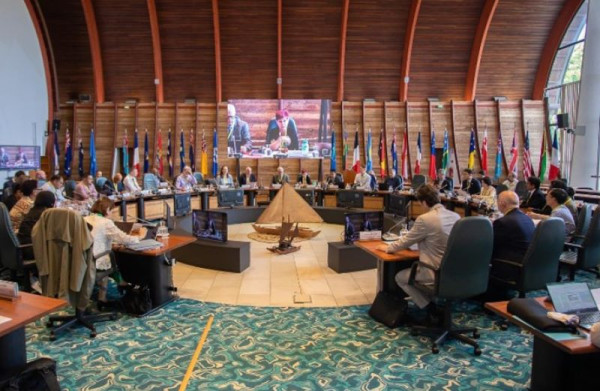International contribution
Trans-Tasman
Aotearoa New Zealand and Australia are committed to creating a seamless trans-Tasman economic environment and progressing towards a Single Economic Market (SEM) under the New Zealand-Australia Closer Economic Relations (CER) Agreement and Trans-Tasman Mutual Recognition Arrangement (TTMRA), among other bilateral agreements and arrangements.
Much like our closely connected economies, Standards Australia and Standards New Zealand have had a long and enduring relationship, with around 70% of New Zealand’s standards being jointly developed with Australia for both territories and economic markets. Developing and promoting regionally and internationally recognised and accessible standards plays an important role in delivering a secure, globally connected and prosperous future for both New Zealand and Australia. The ongoing benefits of our joint standards work is clear. With stronger standards in place, both countries can enjoy greater safety and protection for its people, enhanced economic growth and trade opportunities, and increased prominence, influence, and connectivity on the international stage.
Aotearoa New Zealand’s international trading landscape has evolved over the past few decades. In Europe and Asia in particular, more and varied trade opportunities have emerged over the past 20 years, with new opportunities in this area identified on a regular basis. Consequently, standards need to be fit for purpose to meet the needs posed by this changing economic landscape.
Over time, this situation will likely have an impact on the current joint Australia/New Zealand standards development work and catalogue, as we, like Australia, are likely to see more international standards adoptions to help ensure global market access and connectivity, where historically we have developed joint Australian/New Zealand standards.
Despite this situation, Standards New Zealand’s relationship with Standards Australia will remain a critically important one for the foreseeable future. Careful consideration needs to be given on how to best manage this relationship moving forward, and transition to more international standards in a harmonised way and ensure that both organisations benefit equitably and contribute fairly to the development and implementation of, access to, and value of standards to support both of our economies and shared national interests.
Global
As a national standards body of Aotearoa New Zealand, Standards New Zealand contributes internationally by:
- facilitating committee membership representation for standards development committees. In total, Standards New Zealand manages the participation of technical experts in approximately 83 international committees annually. Standards New Zealand targets International Organization for Standardization (ISO) international committees based on priority sectors and topics important to New Zealand’s economy.
- holding the secretariat for several Australasian committees in the area of electrical safety
- as country member, participating in monthly Asia Pacific and annual International Organisation for Standardisation (ISO) and International Electrotechnical Commission (IEC) general assembly and other meetings and forums
- as a country member of the Asia Pacific Standards Congress (PASC) and Pacific Islands Standards Committee (PISC). Two Asia Pacific Rim forums committed to progressing the interests of our neighbouring Pacific Nations and representing this region’s needs and interests on a global standards stage.
This work is important because it enables Aotearoa New Zealand to understand and influence the development of regional and international standards that will have an impact on New Zealand’s interests (for example, in the areas of international trade and interoperability of products and professional services).
We have seen consistent themes in standards development work emerging from our ISO and IEC international forums. These include renewable energies, carbon emissions reduction, energy efficiency, transport, consumer protection and digital technology. In particular, governments and industry increasingly use national standards bodies to help support climate change action.
As a member of the Pacific Area Standards Congress (PASC) and Pacific Islands Standards Committee (PISC) Standards New Zealand has a focus on supporting specific development initiatives for the benefit of Aotearoa New Zealand’s Pacific neighbours.
In the longer term, as Standards New Zealand achieves its aspirations to increase its access to technical resources and funding, Standards New Zealand will look to increase the scope of its international participation activities and influence in the Pacific region.

